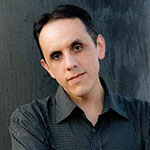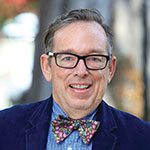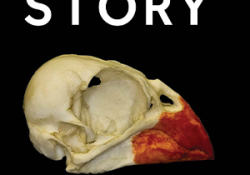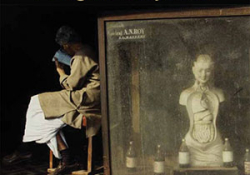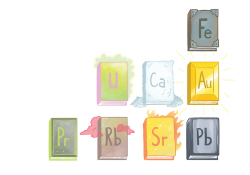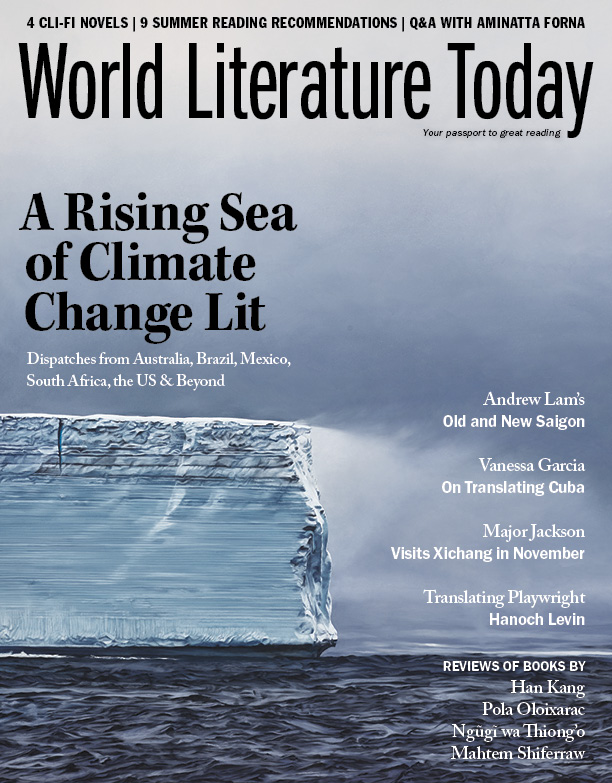The Grand Experiment

Eventually the question became this: How to continue with the grand experiment? And taken to its logical conclusion, what remains?
1. Immigration was officially banned in a large number of countries, mostly developed ones. This happened first.
2. Later, summary executions began at the borders, on the coasts, and (in some cases) at internment camps and reeducation camps that were established within those countries.
3. The politicians who defended such measures pointed to the fact that there were more displaced populations than ever before.
4. Nevertheless, they all explained it in a jarring way, making use of popular lies, using well-known dog whistles.
5. They were invaders, they said, little more than animals, perverse beings, committed to evil, hordes determined to destroy the culture, values, traditions, and purity of the countries they were attempting to enter.
6. Many drowned in the sea, died of thirst and hunger in deserts and hostile terrain, or were executed in their countries of origin, which were often embroiled in civil war or taken over by extremist governments, caciques, or cartels.
7. There was no talk of the causes of the instability of so many places in the world, especially in underdeveloped countries, which were at the mercy of others with more advantages.
8. Most people avoided discussing these, or other, issues. It was difficult, if not impossible, to do so without passion, verbal or physical violence.
9. Great masses, educated on social networks, were unable to renounce or even criticize the beliefs of their tribe; to engage in dialogue with them was impossible.
10. In addition, social credit systems—through which the various States controlled their populations—penalized discussions of issues that were considered “controversial.”
11. Capable of monitoring the internet, public spaces, and nearly all private spaces, these systems could detect, for example, direct or hidden references to climate change.
Capable of monitoring the internet, public spaces, and nearly all private spaces, these systems could detect, for example, direct or hidden references to climate change.
12. Detecting certain terms in oral discourse was more difficult than reading them in online publications or personal messages, but it wasn’t impossible. Once the system found phrases that were considered inappropriate, whoever said or wrote them would be penalized.
13. Everything was part of the Grand Experiment.
14. Punishment could range from paying surcharges on everyday purchases to losing the right to carry out certain activities, such as entering a hospital, enrolling children in a school, or obtaining legal help.
15. Those who acted or spoke out against the government or any of the other de facto powers were also punished.
16. Those who deviated from thought considered officially or unofficially “correct” in any given country, on a myriad of issues, were also punished.
17. This is how different religions were defended, for example, as well as various sexual, social, and economic restrictions, especially for women and the poor.
18. Officially, there was no change in atmospheric temperature or weather patterns. That was a disinformation campaign organized by an enemy group or country. Although the enemy varied, this happened almost everywhere in the world.
19. The owners of extraction and manufacturing businesses were an important part of the upper caste everywhere. Had they been forced to modify ways of releasing less pollutants into the atmosphere, they would have earned much less money than they received each year.
20. The rise in sea levels and the gradual disappearance of ice sheets at the poles, among other, sometimes catastrophic changes, were deemed normal or denied outright.
21. With the exception of some who were invariably punished, people—who were educated to entertain themselves with countless options always available to them—did not consider the matter important.
22. In fact, millions of people lived and died without ever having heard of it during the decades of what was later known as the Advance Party.
23. Flooding in coastal cities and towns forced residents to leave their homes.
24. Those who lived near poisoned lands or rivers, or those victims whose lands turned to desert, becoming unproductive and, in many cases, uninhabitable, also began to leave.
25. Internal pressure, compounded by that of refugees and migrants who (despite everything) continued to attempt to escape violence in their places of origin, took decades to become unsustainable.
26. But, ultimately, the situation became untenable.
27. Together with social control, disinformation campaigns were effective in diverting attention from the real reasons that products grew expensive and services deteriorated.
28. Several countries enacted racial, sexual, or religious segregation laws, and other civil rights restrictions, based on false stories about enemies that were no longer external but rather internal.
29. On other occasions, highly publicized trials were carried out against select members of the business or political class, who were returned to their position of privilege as soon as people lost interest in their cases.
30. The majority of the world’s leaders, entertainment figures most of all, became even more beloved by their supporters and defenders in the first years after the catastrophe became apparent.
31. Some were united by the same version of demagoguery perfected from previous centuries: offering a target, a group to blame for problems, and punishing it publicly and cruelly, in order to foster unity in hatred and fear.
32. No one described any system of government in this way. But nor did they talk about the Grand Experiment either.
33. The worst storm and hurricane season recorded in human history culminated in millions of deaths and dozens of submerged islands.
34. It was no longer possible to deny that weather patterns, altered decades before, had become erratic to the point of being unpredictable, not to mention extremely violent.
35. Almost every media outlet and leader continued to deny that anything abnormal was happening, but different groups of specialists and influential people began to meet in secret to devise a solution.
36. The solution should leave intact privileges enjoyed by businessmen, politicians, and other important persons.
37. The solution should not disturb any faith or tribal conviction of any country, including those growing out of religious or magical thinking and that denied the validity of science.
The solution should not disturb any faith or tribal conviction of any country, including those growing out of religious or magical thinking and that denied the validity of science.
38. A great mass extinction of species took place all over the planet.
39. Large portions of the Amazon and other jungle areas dried up.
40. Large plains in Asia, Europe, Africa, Oceania, and America were devastated by tornadoes.
41. Large numbers of people, imprisoned between frontiers they were unable to cross and regions to which they could not return, attempted to subsist in subhuman conditions: they either rebelled or were victims of attacks from all sides.
42. The various working groups, always in secret so as not to disturb populations or dignitaries, all concluded that there was no solution.
43. They were comforted by the idea that the time to resolve the problematic trends at the time had passed several decades earlier.
44. If work had only been done then to lessen the destructive effects of human action, they said.
45. If work had only been done then to alleviate inequality, the preservation of which (it was now clear) had contributed to such an extent to general instability.
46. If they had only sought and supported decisively—during the time of the parents and grandparents of those who spoke—other sources of energy.
47. Obviously, those parents and grandparents would never have attempted anything like that. But nobody mentioned it.
48. All this happened during the years when food began to be less abundant, even in the most favored regions.
49. The challenge now was to leave the past behind, many said, and consider the problem in another way, to find a different solution.
50. It no longer made sense to ask if the Earth could be saved, or restored to a state better than it was.
51. The question should now be this: how to continue with the Grand Experiment.
52. When formulating the question, nobody explicitly mentioned the Grand Experiment.
53. It was posed, rather, in this way: how to saves the lives of the largest possible number of people living in the distressing and regrettable circumstances that everyone acknowledged.
54. When the time came to select whom to help first, every possible consideration was given to politics, public life, and social stratification.
55. The opinion of the owners of the large technology companies was also taken into account.
56. The great minds that, for so many years, had been devoted to mitigating the effects of the concentration of wealth while moving the world forward and, naturally, creating even more wealth, for themselves and their shareholders.
57. The World Wide Web, which by then was already highly compartmentalized, censored, and monitored, was closed entirely to the poorest 90 percent of the countries in the world.
58. Likewise, all contact between the most fortunate nations and the others was suppressed and all movement banned.
59. That happened first.
60. The intention was to cut off the sources of information and the possibilities of movement of the less fortunate sector of the species: to prevent it from anticipating what was going to happen.
61. What was to happen was at first called the Exodus. Later, the Retreat. Finally, the advertising agency in charge of the campaign was replaced by another one, more closely allied to a handful of extremely powerful billionaires.
62. The second agency dubbed the proposal as the Advance Party and proposed it as a project for the whole of humanity.
63. That is to say, the portion of humanity that knew about the plan, that saw the videos and the announcements, and to which the shutdown of global communications had been sold as a great achievement, in the face of the threat of the resentful, the wicked, the savages.
64. The project consisted of opening up new habitable areas: nothing less than the colonization—now that the Earth was heating up—of the polar regions.
The project consisted of opening up new habitable areas: nothing less than the colonization – now that the Earth was heating up – of the polar regions.
65. Thousands of years of ice had melted. It would soon be a temperate zone. It was necessary to get there first, before the others. To establish areas for housing, cultivation, mining, or oil exploitation.
66. The stories of the great European explorers from previous centuries were revived: those who had died in search of the South Pole or the Northwest Passage. There was talk of heroism, adventure, effort, and triumph.
67. Later, the war of extermination against the populations that were already living in the polar areas began. They would not be part of the Advance Party.
68. In this war, the wealthiest and fiercest weapons companies were able to put their conventional arsenal into action as never before in history.
69. Never had there been a war so big or so quick against the rest of the world: the rest of the 90 percent, because they had been kept sufficiently at bay, and it was expected that most would die in the first decade alone of the Advance Party.
70. Beside this, always in the back of the minds of the best people on Earth, lay the Grand Experiment.
71. This was not actually an articulated principle, much less promoted or studied. But they all defended it, and it was easy to understand.
72. The Grand Experiment was simply the objective of the existing political and economic systems during that period of the world, and of their predecessors.
73. The Grand Experiment: to maximize the welfare and power—and at the same time to minimize the size—of the ruling castes.
74. Many decisions were made, as always, with the implicit aim of ensuring the success of the Grand Experiment.
75. For example, the big weapons manufacturers should receive greater opportunities to develop and sell their products, which meant using the ones they already had.
76. In this way, several nuclear bombs were used in areas that were already considered lost. Above all, in those near the borders of the fortunate nations, to intimidate through fear.
77. And other forms of subtler and less polluting weapons were deployed in more remote areas.
78. The first to arrive in the newly cleared polar areas were the workers: millions of bodies, with the help of machines, in charge of preparing the land, erecting buildings, constructing new cities.
79. They all came from their regions’ lower castes and were slaves: hired as such, or taken from prisons, and other sources of personnel for forced labor.
80. Most were not going to return nor had anywhere else to go.
81. Others, later on, would go back to the equatorial regions when there were no longer disturbances and the areas could be reused, for example, for mining or the exploitation of solar energy.
82. (Solar energy was banned for religious reasons in some countries, so little was said about it.)
83. The first advance parties of settlers, the next level in the social scale, arrived later in the polar areas, in slow and crowded boats, but full of pride.
84. Later the masters would arrive, with their women, their human pets and animals. Their machines, and their conviction that everything was the fruit of their effort, their exceptional and victorious character.
85. In the abandoned areas, the new deserts in the central part of the world, many things happened that were not documented in History, which from then on belonged to the beneficiaries of the Grand Experiment.
86. For example, in many of the regions that had previously been nation-states, depopulation happened so slowly that it allowed the formation of new nations.
87. They all had their origin in the fragmentation of those states, owing to the chaos, poverty, and hatred between tribes that disputed each region, and that in some cases dated to the time of the actual World Wide Web.
88. In these places, behind the Advance Party’s back, rejected by the Grand Experiment, something else took place: the appearance of many small nations, tiny fiefdoms, each different from the other, all unusual. Greenhouse flowers of strange colors.
89. A nation based on the hatred of medicine. A nation of speakers of a language suppressed for centuries. A nation in which a onetime criminal gang, accustomed to preying on others, had to learn to survive without anyone else around.
90. A nation committed to allowing all possible forms of identity.
91. A nation presided over by women.
92. A nation composed exclusively of men, based on a contempt of women and convinced that the divine would allow them to reproduce supernaturally.
93. (It didn’t happen, and upon realizing that it wouldn’t happen, all of its inhabitants chose mass suicide.)
94. The majority of these nations were totally isolated from the others, confronted by enemies whose origin was already being forgotten, isolated, and in decline.
95. They were running out of resources, energy, knowledge to control the century’s technology or spare parts to keep it working.
96. Their inhabitants told legends: how the world had been in other times, its magical origins.
97. Even today, some of those stories speak of the rain that fell in other times, of green plants, of large populations in illuminated cities, like fields of stars on the ground.
Even today, some of those stories speak of the rain that fell in other times, of green plants, of large populations in illuminated cities, like fields of stars on the ground.
98. These are the ones that are believed least, those that seem like the most irresponsible and absurd fantasies, in the darkness of the ruins that could be the final result of the Grand Experiment: the accumulation of everything for no one.
99. Because, also, in the cities of the extreme south and far north, which are so bright they’ve done away with the auroras, there are defects in the machinery, and the air continues to heat up, and the wind has become a bit radioactive, and the waters are polluted by the passage of ships.
100. And on the screens the leaders say that it’s not true, that life has always been the same—just as good—there, in the best of all possible worlds.
Translation from the Spanish
